Welcome remarks
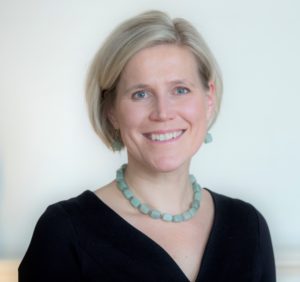
Chancellor of Justice in Estonia
Ülle Madise has graduated from Tartu University Faculty of Law Bachelor`s and Master`s programmes cum laude and holds a Doctor of Philosophy degree in Public Administration from Tallinn University of Technology. Before taking up the office of Chancellor of Justice, she worked as a professor at several universities (Tartu University, Tallinn University of Technology) and as a legal advisor to the President of the Republic of Estonia. In 2019, under the guidance of Ülle Madise, the Advisory Committee on Human Rights was established aimed at advising the Chancellor of Justice in human rights issues.
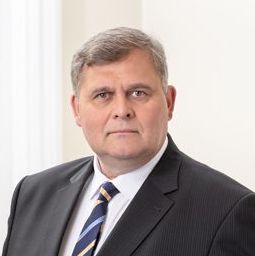
Minister of Justice of the Republic of Estonia
Raivo Aeg has been the Minister of Justice since April 2019. Aeg has been a member of the political party Isamaa since 2014. In 2015-2019, he was a member of the XIII Riigikogu and Chairman of the Security Authorities Surveillance Select Committee. Before that, he was an Advisor at the Office of the Chancellor of Justice, Director General of the Estonian Internal Security Service, Director General of the Estonian Police, Deputy Director General of the Estonian Police, and Head of the Public Safety Department of the Estonian Police. He was awarded with the 2nd class of the Order of the Cross of the Eagle in 2008.
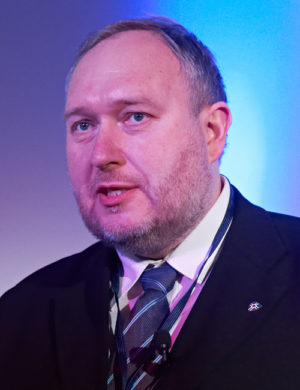
Institute of Human Rights Chairman of the Management Board
Vootele Hansen graduated from the Department of Geography of the University of Tartu in 1985. From 1985-1990, Hansen worked at the Institute of Applied Geography Baltic Sea Department in Moscow and from 1990-1992 at the Tallinn University of Technology (the Baltic Sea Department was reunited with the University of Technology). He was a member of the VII, VIII and IX Riigikogu. In 1994–1995, he served as the Minister of the Environment in Andres Tarand’s cabinet. From 2004, he has been a school teacher. In 2007–2010, he also worked at the National Audit Office. Hansen is a member of the supervisory board of the Estonian Evangelical Lutheran Church Mission Centre and Tallinn Toompea St. Charles Congregation Chairman of the Board and Chairman of the Management Board of the Institute of Human Rights.
I panel: Are universal human rights even possible in different cultures?
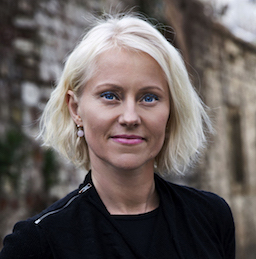
journalist
Hille Hanso is a freelance journalist, observer and documentary author living in Istanbul. Her main interest is the political situation in the Middle East, and in media outlets, she has analysed the behaviour of different countries in the region on the international arena. She has written a book about her life in Turkey "Minu Istanbul. Poolik ja tervik" (My Istanbul. Half and whole) published in 2014.
Hanso is an active advocate for the protection of human rights: she has participated in gender equality trainings (in Israel and India) and has conducted them in Kyrgyzstan, Tajikistan and Turkey. From 2018, she also works as an NGO MTÜ Eesti Pagulasabi (Estonian Refugee Assistance) coordinator in Lebanon and Jordan, managing aid projects targeted at Syrian refugees. At this year's conference, Hanso will moderate the debate "Are universal human rights even possible in different cultures?"
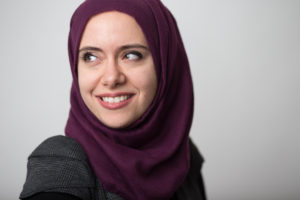
economist and activist
Syrian-Lebanese economist and activist. His main interests include international cooperation and development and migration. In 2011, he established the civic organisation Sawa for Development and Aid, aimed at helping Syrian refugee families in Lebanon. He has an MA in International Cooperation and Development and a PhD in Gender and Economic Development, both from the University of London. In addition to migration, Mhaissen works actively on reduction of gender inequality, focusing on the situation of MENA women on the labour market.
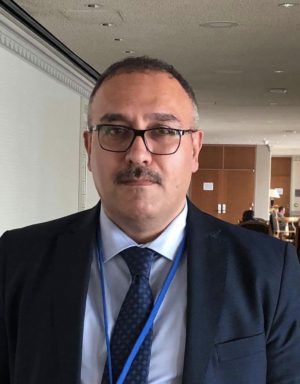
President of the Assyrian Aid Society, AAS Iraq Department
The President of the Assyrian Aid Society, AAS Iraq Department. AAS provides humanitarian aid to Assyrian Christians and it was founded to support them after the 1991 Gulf War. In 2008–2010, Eskrya was the Society`s Vice President, taking over the President`s role in 2010. Eskrya has graduated from Engineering at the University of Baghdad. He has participated in many conferences, thereby raising international awareness on the situation of Assyrian Christians.
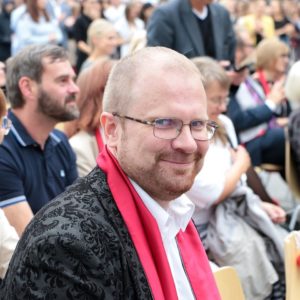
Professor at Tallinn University
Peeter Selg is a professor at Tallinn University, School of Governance, Law, and Society. He has worked as a research fellow and teacher in universities for close to 20 years. In 2011, Selg received a PhD from Tallinn University in political science and governance. He has published many articles and publications, supervised dissertations and reviewed reputable academic journals. From 2018, Selg is an expert evaluator of Palgrave Macmillan publishing house series` and Routledge publishing house series` ”Routledge Focus” book applications.
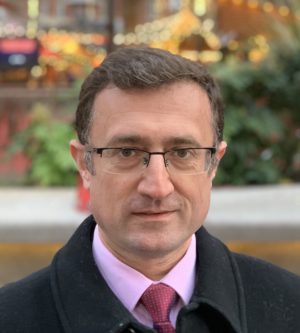
Advisor to Prime Minister of Israel Benjamin Netanyahu
Robert Ilatov is a long-term Israeli politician and Advisor to Prime Minister of Israel, Benjamin Netanyahu. He has served four terms of office as a member of Knesset. As a Parliament delegate, he primarily focused on economic and foreign policy. During 1993–2003, Ilatov was a member of Netanya City Council, where he was the Head of the Immigration Committee. During 2003–2006, Ilatov was the Deputy Mayor of Netanya.
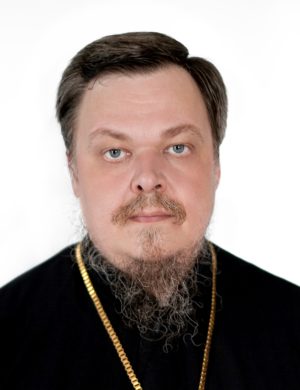
archpriest
Archpriest Vsevolod Chaplin has participated in elaborating, amending and discussing key draft laws in Russia, as well as several relevant draft laws in other post-Soviet countries. He has held different positions in the Moscow Patriarchate, including Chairman of the Department for Church-Society Relations from 2009-2015 among others. He has also been a member of various councils and commissions both in Russia and on the global arena. He has participated in many conferences and public discussions on matters of relations of religion, state and society. Author of many publications and books, for example ‘Church in Russia: Circumstances of the Place and the Time’. After being released from his duties in church administration in 2015, Vsevolod Chaplin publishes different texts and comments as an independent author in the Russian media. He is the co-founder of the ‘Russian Mission’ liberal-conservative intellectual club and is a member of the Public Chamber of the United State of Russia and Belarus. Archpriest Chaplin is also a member of several opposition groups organizing rallies and public discussions in Russia. Since 2019, he is a member of the coalition ‘The Third Force’.
II panel: What challenges does climate change pose to human rights?
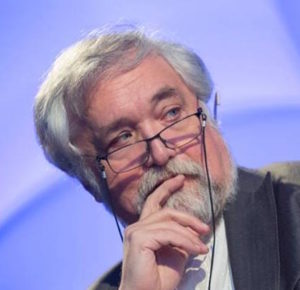
biologist and diplomat
Toomas Tiivel is a biologist and diplomat. In 1975, he graduated from Tartu University as a biologist and then started working at the Estonian Soviet Socialist Republic`s Academy of Science. He defended his Biology PhD in 1984, and became a professor in 1993. He took up employment at the Republic of Estonia`s Ministry of Foreign Affairs in 1992 and has held different positions in the Ministry. Toomas Tiivel has worked as an ambassador to Latvia (1994-1998), Sweden (2000-2004) and China (EXPO - 2008-2010). He has given many lectures (also as a teacher at Tallinn University, Audentes, Tallinn University of Technology, Estonian School of Diplomacy), published and translated several books and articles on evolution, democracy and international organisations among other topics. From 2019, he is the Chairman of Estonian Society for Nature Conservation.
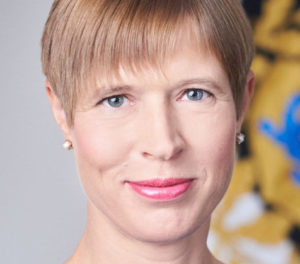
President of the Republic of Estonia
From 2004-2016 she was a Member of the European Court of Auditors. She has previously worked as the CFO and CEO of the Iru Power Plant of state-owned energy company Eesti Energia and as an Economic Advisor to Estonian Prime Minister Mart Laar. She has graduated from the University of Tartu in the field of genetics and completed master’s studies in the Faculty of Economics and Business Administration. The President of the Republic supports many organisations and causes and she was also campaign patron the Estonia as the non-permanent member of UN Security Council 2020-2021.
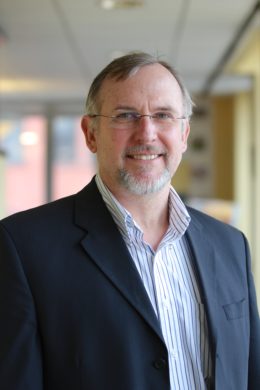
an environment and human rights expert
He is the Director of Land and Resource Rights (LRR) at the World Resources Institute. LRR seeks to strengthen land tenure and natural resource rights of rural people and communities. Over his long career, he has primarily focused on researching the connections between the environment and human rights and the environment and democracy. Veit has done research in a number of African countries, e.g. Sierra Leone and Rwanda. He is an Adjunct Professor at Johns Hopkins University.
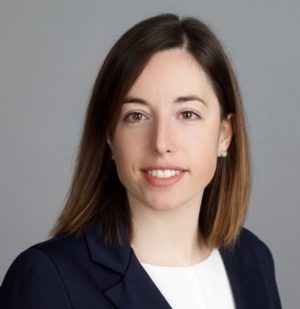
Green Economy and Sustainable Business Specialist, adelphi
Bibiana García provides policy consultations on green economy and sustainable business in the independent think tank adelphi. Among other work, she is engaged in implementing human rights due diligence in transnational corporations` supply and value chains. Prior to commencing her position at adelphi, García gathered experience in human rights and sustainable business. During her time with an ESG rating agency in Berlin, she analysed and evaluated the sustainability performance of businesses. At the European Centre for Constitutional and Human Rights (ECCHR) in Berlin, she provided legal assistance to victims of human rights violations perpetrated by corporations in the global south. During her employment at CEJIL (Centro por la Justicia y el Derecho Internacional) in Costa Rica, she worked on international human rights and assisted people suffering from human rights infringements in Mexico and Honduras.
https://www.adelphi.de/en/employee/bibiana-garcia
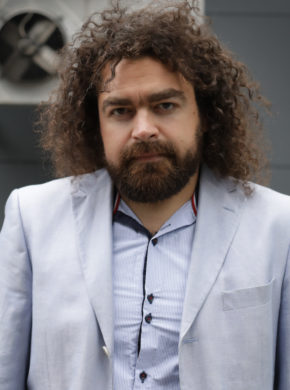
Regional Program/Integration Officer, UNHCR Regional Representation for Northern Europe
Karolis Žibas is the Regional Program/Integration Officer at the UNHCR Regional Representation for Northern Europe. He has also worked as a Senior Researcher at the Lithuanian Social Research Centre and Vytautas Magnus University. His research focuses on migration and human rights in the Baltics. He is the founder and CEO of the NGO Diversity Development Group (from 2012).
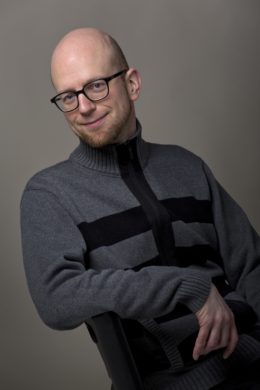
University of Helsinki Adjunct Professor of Environmental Theology in the Faculty of Theology
He researches the psychological and spiritual dimensions of environmental issues. In Finland, Pihkala has become known for introducing the concept of eco-anxiety. Eco-anxiety is where a person feels anxiety and hopelessness regarding environmental problems. Pihkala has published a number of books and research articles on the subject. In addition to research, he promotes environmental education and is an ordained minister.
https://researchportal.helsinki.fi/en/persons/panu-pihkala
Opening words of the second half of the conference
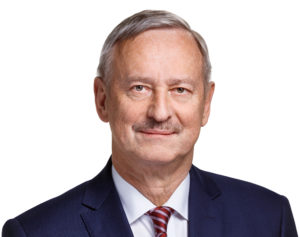
Vice-President of the Riigikogu
In 2004–2014, Siim Kallas served as the Vice President of the European Commission. He was also the European Commission Commissioner for Transportation and Commissioner for Administrative Affairs, Audit and Anti-fraud. Kallas has been the Governor of Eesti Pank, Prime Minister of the Republic of Estonia, Minister of Finance, Minister of Foreign Affairs, Member of the Supreme Council of the Soviet Union and member of the Riigikogu. Kallas is a founding member of the liberal party Estonian Reform Party; in 1994–2004, he was the leader of the party. In 2010, he established the Kristi and Siim Kallas sub-fund of the Estonian National Culture Foundation to support introduction of Estonian history via theatre arts. He has published a number of books, including “Vabaduse ja kurjuse vahel. Euroopa Liidu lugu“ (2018, Between freedom and evil. Story of the European Union).
III panel: Will technological advancement run down human rights?
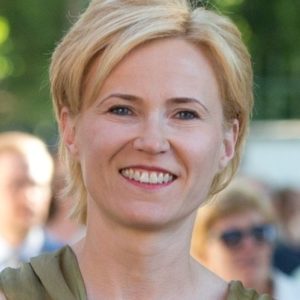
information manipulation researcher
Urve Eslas is an information manipulation researcher, the head of the international organisation OIP Baltics and advisor to former president Toomas Hendrik Ilves. She has a Master`s degree in Philosophy and is currently writing a doctorate thesis on conflict creation. In the past, Eslas worked in the Center for European Policy Analysis in Washington and as an opinion editor at the daily newspaper Postimees.
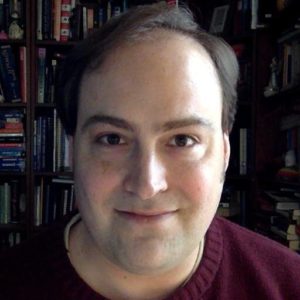
Senior Fellow at the Atlantic Council’s Digital Forensic Research Lab
Andy Carvin is a senior Fellow at the Atlantic Council’s Digital Forensic Research Lab (DFRLab) that aims to identify, expose, and explain disinformation where and when it occurs using open source research. From 2006 to 2013, Andy was Senior Strategist at NPR, where he founded the company’s social media desk and developed new reporting techniques to improve the quality and diversity of NPR's journalism. From 2006–2013, he was a Social Media Expert in US public radio. Carvin become known for his tweets on the 2010 Tunesian revolution. He has gained thousands of followers fighting for the truthfulness of news on social media. In the late 1990s, he advocated for the internet to be used more widely in general education schools. Carvin was the Director of the organisation Digital Divide Network, aimed at bridging unequal access to information technology.
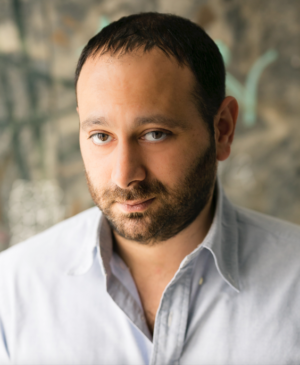
British journalist and author
British journalist and author of a number books on politics. He received his MA in 2008 from the University of Oxford. As a journalist, Patrikarakos has written for world-famous publications like Politico, Foreign Policy and Financial Times. He has published books on international relations, the best known are "Nuclear Iran: Birth of An Atomic State" and "War in 140 Characters: How Social Media is Reshaping Conflict in the Twenty-First Century".
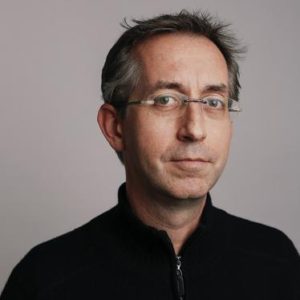
Geospatial Analysis Programme Director, Human Rights Watch
Josh Lyons is the Director of Geospatial Analysis at Human Rights Watch, responsible for satellite, drone and artificial intelligence applications for human rights investigations. He is a member of the Technological Advisory Board OTP at the International Criminal Court (ICC) and has contributed to international investigations, including the UN Fact Finding Mission on Gaza report in 2009, and the UN Secretary-General's Panel of Experts report on Sri Lanka in 2011. He has been involved in the work of the UN’s Commission of Inquiry on Syria and the Fact Finding Mission on Myanmar. Before joining HRW, Lyons was the principal analyst of the UN’s operational satellite applications` program, responsible for the overall research, development and production of satellite-based reports in support of humanitarian operations during natural disasters and armed conflicts. Lyons has master’s degrees in International Relations from the London School of Economics (LSE), and Geographic Information Science from University College London (UCL).
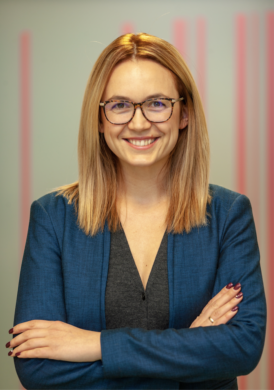
Senior Policy Officer, Guardtime
Anna-Maria Osula is a Senior Policy Officer at the cyber security company Guardtime, which provides blockchain solutions for data management and real-time identification and mitigation of cyber attacks. She also works as a Senior Researcher at Tallinn University of Technology. In the past, she has worked as a Senior Researcher at NATO Cooperative Cyber Defence Centre of Excellence, where her areas of research included national cyber security strategies, international organisations, international criminal cooperation and legislation. In 2013–2015, she was the Project Manager of the NATO CCD COE project ”Cyber norms” and co-editor of the book ”International Cyber Norms: Legal, Policy and Industry Perspectives”. She is the founder and co-host of the annual conference “Interdisciplinary Cyber Research” (ICR) (Tallinn, Estonia). Osula has an MA in IT Law from Stockholm University and a PhD in Law from the University of Tartu.
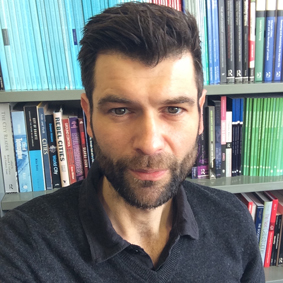
Researcher, Expert of Technology and Human Rights
Professor Fussey’s main research interests focus on surveillance, digital technology and human rights, intelligence oversight, and social control and he has published widely across these areas. He is a director of the Centre for Research into Information, Surveillance and Privacy (CRISP), and Research Director for a five-year large-scale ESRC project, analysing the emerging technology-enabled security solutions and human rights in the US, UK, Brazil, Germany and India. Professor Fussey has also worked with and advised national and regional governments in the UK and Europe on a number of issues including the regulation of surveillance, public order policing and the security and social implications of urban mega-events. He currently works with UN agencies on issues concerning human rights and digital technology, leads the ‘human rights and technology’ strand of the UK’s national Surveillance Camera Strategy and lead the independent review of the Metropolitan Police Service’s trials of live facial recognition technology.
IV panel: What will happen to human rights with the onslaught of populism?

Chancellor of Justice in Estonia
Ülle Madise has graduated from Tartu University Faculty of Law Bachelor`s and Master`s programmes cum laude and holds a Doctor of Philosophy degree in Public Administration from Tallinn University of Technology. Before taking up the office of Chancellor of Justice, she worked as a professor at several universities (Tartu University, Tallinn University of Technology) and as a legal advisor to the President of the Republic of Estonia. In 2019, under the guidance of Ülle Madise, the Advisory Committee on Human Rights was established aimed at advising the Chancellor of Justice in human rights issues.
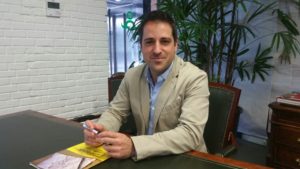
Expert on Economic and Social Rights, Just Fair Policy Director
Research Associate at Newcastle University and the Policy Director of the human rights NGO Just Fair that monitors economic and social rights in the UK. Casla is the co-author of the first UK draft Bill on Economic and Social Rights, produced at Newcastle University with partners from civil society and other universities. He holds a PhD in European and International Studies from King’s College London, a Fulbright MA in International Studies from the University of Denver, an MA in Theory and Practice of Human Rights from the University of Essex, and a Law Degree from the University of the Basque Country, Spain. He is the author of four Amnesty International reports on the rights to health, education and housing in Spain. Casla recently published the book “Politics of International Human Rights Law Promotion in Western Europe: Order versus Justice”.
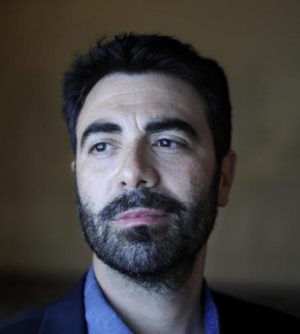
ICREA Research Professor, Philosopher
ICREA Research Professor of Philosophy at Pompeu Fabra University in Barcelona. Zabala was raised in Rome, Vienna and Geneva. He obtained his PhD from the Pontifical Lateran University of Rome and has taught at Johns Hopkins University, Renmin University of Beijin, and the University of Barcelona. Zabala has published numerous books and articles, his work has been published by Columbia University Press, Al-Jazeera, The Guardian, The New York Times and other reputable publications. His main areas of research include philosophy of religion, political science and aesthetics.
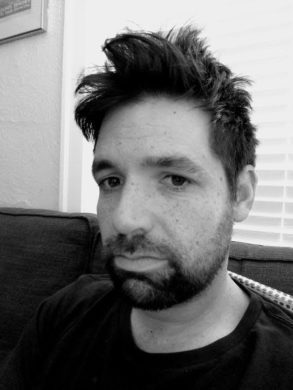
Freelance journalist
Freelance journalist from the US, whose work can be found in reputable publications like The Guardian, The New Yorker and The New York Times. In January 2019, The Guardian published his essay on populism, where Baker describes the multifaceted nature of populism and the connections between populism and democracy. He has also written multiple articles about US history, among other topics, focusing on racism and economic inequality.
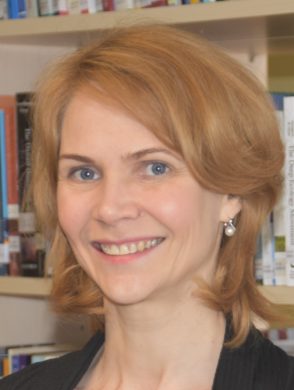
Associate Professor at University of Tartu
Associate Professor of Political Theory at the University of Tartu. She has worked as a Visiting Scholar and Visiting Associate Professor at Harvard and Yale Universities. Her interests include early modern political philosophy, theories of human rights, self-determination of peoples, and nationalism. Piirimäe obtained her PhD at the University of Cambridge. She has published research articles and edited volumes, and is currently writing a book on Johann Gottfried Herder`s ideas on patriotism, cosmopolitanism and nationalism.
-
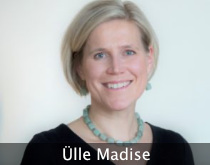 2019Parallel World Values and InterestsA clean environment and future of the globe, the possibility to preserve your privacy and option to disengage, which is necessary for the human psyche, are practical topics that apply to everyone.
2019Parallel World Values and InterestsA clean environment and future of the globe, the possibility to preserve your privacy and option to disengage, which is necessary for the human psyche, are practical topics that apply to everyone. -
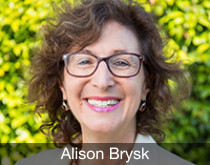 2018Conflicts of ValuesIn 2018, the panels discussed the topic of small countries as equal partners, whether human rights have a future, how much algorithms affect human rights and whether Russia has a future.
2018Conflicts of ValuesIn 2018, the panels discussed the topic of small countries as equal partners, whether human rights have a future, how much algorithms affect human rights and whether Russia has a future. -
 2017Are Human Rights in Freefall?The conference will address a number of today’s most important topics – terrorism, technological development, security, small states in a globalising world, culture and international cooperation – through a human rights perspective.
2017Are Human Rights in Freefall?The conference will address a number of today’s most important topics – terrorism, technological development, security, small states in a globalising world, culture and international cooperation – through a human rights perspective. -
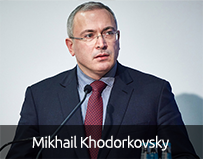 2016Black and White Values in a Polarizing WorldThe topics under discussion this year include a survey of public opinion on human rights among the Estonian citizens and foreigners living in Estonia, questions related to collective human rights and propaganda that have changed people’s understanding of basic rights.
2016Black and White Values in a Polarizing WorldThe topics under discussion this year include a survey of public opinion on human rights among the Estonian citizens and foreigners living in Estonia, questions related to collective human rights and propaganda that have changed people’s understanding of basic rights. -
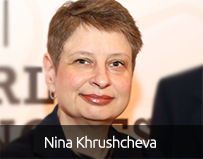 2015Human Rights in Changing TimesThe topics under discussion this year include case studies from the European Court of Human Rights, linguistic human rights, as well as the views of various generations of Russians today regarding their society.
2015Human Rights in Changing TimesThe topics under discussion this year include case studies from the European Court of Human Rights, linguistic human rights, as well as the views of various generations of Russians today regarding their society. -
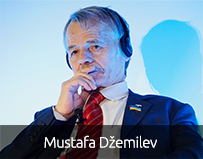 2014Dignity in the context of human rightsThis year the conference agenda included three keynotes and a panel discussion following each one: 1) guarantees under international law; 2) rights of native peoples; guarantees under international law; 3) the situation and future in Russia and Ukraine and human rights.
2014Dignity in the context of human rightsThis year the conference agenda included three keynotes and a panel discussion following each one: 1) guarantees under international law; 2) rights of native peoples; guarantees under international law; 3) the situation and future in Russia and Ukraine and human rights. -
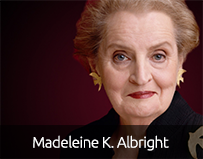 2013Human Rights and the Freedom to AssociationThis year’s annual conference, titled “Human Rights and the Freedom of Association” will analyse the global developments in human rights that have taken place in 2013.
2013Human Rights and the Freedom to AssociationThis year’s annual conference, titled “Human Rights and the Freedom of Association” will analyse the global developments in human rights that have taken place in 2013. -
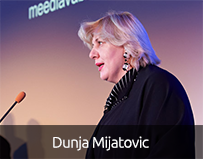 2012New Challenges of Human RightsOur conference examined human rights where the internet and the concept of security have altered dramatically our 20th century understanding of the core issues of human rights.
2012New Challenges of Human RightsOur conference examined human rights where the internet and the concept of security have altered dramatically our 20th century understanding of the core issues of human rights. -
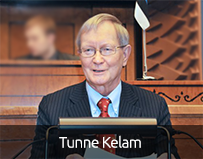 2011Dedicated to the 20th anniversary of restoration of independence of Estonia
2011Dedicated to the 20th anniversary of restoration of independence of Estonia

